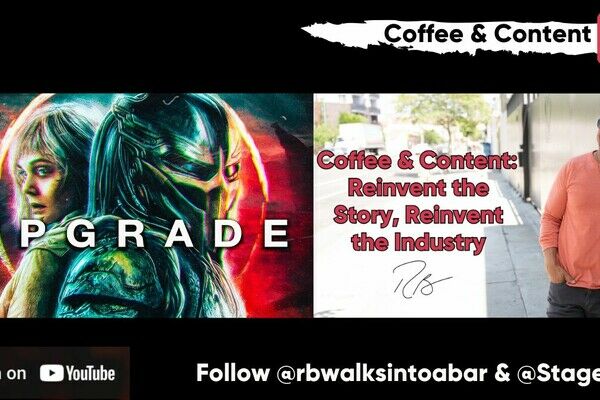6 Things To Know About Script Legal Research
So, you have sold your screenplay, and you have earned the right to do the first, second, and possibly third rewrite. You have received notes from producers, and directors and have revised the screenplay. The rewritten script has survived the task and has been green-lit into the pre-production stage!
The information I will give you is an overview of a required process, not known by many writers. Below are 6 things you should know about script legal research.

1. What Are Script Legal Research Reports?
The producer or the production attorney orders a Script Legal Research Report on the screenplay from a legal research company catering to the entertainment industry. The legal researcher assigned to the project will read, break down the screenplay, identify, and research all items, such as names of characters, businesses, organizations, locations, artwork, intellectual properties, book titles/covers, brand name products, etc., plus fact-check all pertinent references.
The legal researcher sends the completed Report back to the producer/production attorney, citing the liabilities and/or any conflicting legal issues. The production staff follows through and addresses all legal problems. With the Script Legal Research Report, the producer/production attorney will be able to obtain the errors and omissions insurance needed to protect production from any possible liabilities. Distributors require EO insurance to guarantee that the screenplay has been vetted for legal issues. Besides screenplays, TV pilots and the episodes in a TV series that have been green-lit must go through the Script Legal Research process to ensure acquiring the EO insurance.
I am a screenwriter, playwright, novelist, and producer. As my day job, I worked in the Script Clearance Department at the Walt Disney Company, which makes sure that all film projects’ legal issues indicated in the Script Legal Research Report are addressed and the agreements are fully executed. Later, I worked as a legal researcher on film and television scripts at Marshall-Plumb Research Associates in Burbank, CA, providing production companies/studios with the Script Legal Research Report, which is the other side of the coin of script rights clearance.
Remember all the character names, names of grocery stores, banks, restaurants, hair salons, organizations, etc., you painstakingly chose for the screenplay? If these names are real or have the probability to cause any legal problems, they must be changed, removed and/or addressed by obtaining permission and following up with release agreements.

2. Researching Character Names
Following is an example of what happens to a character name researched:
The screenplay has been set in Los Angeles, CA and the script identifies a character who is a doctor with the name, “John Smith.” The legal researcher will check several databases for the name, “John Smith,” and document how many “John Smiths” live in Los Angeles, CA. If there are five or more living in Los Angeles, the legal researcher may stop searching for the name in the Los Angeles, CA area. However, if there are no listings for the name, “John Smith,” in Los Angeles and none is found in the county of Los Angeles, the name is checked throughout the state of California, which may result in finding over five listings for the name, “John Smith.” If none is found in the state of California, the name is checked throughout the U.S. Also, this name will be researched with the Medical Licensing Board of California, the AMA directory, and other pertinent medical databases for the U.S. and as a prominent individual. If only one listing is found for this exact name in Los Angeles or California or the U.S. or as a doctor or as a prominent individual, the producer/production attorney may decide whether to change the name to avoid any conflicting issue or obtain a signed release form for the use of the name in the finished film. Usually, the producer/production attorney will decide to change the name.
Every character's name will go through the same rigorous research. If establishing a profession that requires a license and/or certification, such as lawyers, teachers, architects, construction contractors, policemen, etc., the character name will be checked with the appropriate government department and/or licensing board in that state.

3. Researching Brands & Businesses
When generic products, such as a milk carton, a bottle of juice, bottled water, etc., are identified in the script, the Report states the following: “Possible commercial identification of a brand name product.” If a brand name product is mentioned, such as “Coca-Cola,” contact information is provided so that the producer/production attorney can obtain a signed release form, allowing the product to be used in the finished film.
Names of businesses are treated the same way. The legal researcher goes through the business databases, trademark files, copyright files, government sites, etc. If the name chosen identifies an actual business/organization, the Report will suggest discussing it with the production attorney since the legal researcher cannot give opinions.

4. Books, Albums, and Artwork
Actual books used as props must also be cleared by contacting the copyright holder and acquiring permission. The legal researcher can provide cleared fictional book titles for prop usage if requested by the production staff.
Proprietary logos, labels, and artwork, including paintings, sculptures, murals, movie posters, album covers, and even tattoos get flagged in the Report. When a character name is described in the script as having ‘tattoos,’ the legal researcher will pick up the description and state the following: “Possible use of proprietary drawing(s), artwork, and/or designs.” This wording will clue the producer/production attorney of the potential problem, that proprietary material might be identified.
If a specific artwork is wanted in the film, then permission is required from the rights holder. Owners of intellectual properties have the exclusive rights to their creations when registered with the U.S. Copyright Office and/or the U.S. Trademark files. However, many times the art department of the production creates its artwork designs to avoid infringing on anyone’s intellectual property, and, if the art department wants to add a title to the artwork, the legal researcher can check the title, and assure production that the fictional name is clear to use.

5. Intellectual Property
Other intellectual properties specified in the script that need rights clearance are music, lyrics, quotes, social media websites, interactive video games, and film/television clips.
Since music clearance is time-consuming, a music clearance person and/or company is often hired. For example, a poster of a musical group may require permission from various sources: The record company, band management, photographer, and the band members, for the use of their likenesses. The music clearance person negotiates the terms and fees, presents specific licensing agreements, and assures that the agreements have been fully executed before the finished film is released to the public.

6. If Permission Is Denied...
In case permission cannot be obtained, the names/items/issues must be removed. However, with a simple wish list request sent to the legal researcher, the producer/production attorney and staff can have cleared, fictional alternative replacements.
Because I have been preconditioned by doing this work, I have set some of my screenplays in fictional cities/towns and have done preliminary checks on character and business names to lessen the legal liabilities. That’s just how my mind works. As a scriptwriting teacher once said to me, and I pass the advice on to you, just write and let your creativity flow. Don’t worry about any conflicting legal issues. Let the legal researcher and the producer/production attorney deal with it.
Let's hear your thoughts in the comments below!
Got an idea for a post? Or have you collaborated with Stage 32 members to create a project? We'd love to hear about it. Email Ashley at blog@stage32.com and let's get your post published!
Please help support your fellow Stage 32ers by sharing this on social. Check out the social media buttons at the top to share on Instagram @stage32 Twitter @stage32 Facebook @stage32 and LinkedIn @stage-32
| Coffee & Content: Traits You Need To Succeed In The Entertainment Business |
| St. Pete-Clearwater Film Commission Partners with Stage 32! |
Search Stage 32 Blog
There are now 4037 blog posts for you to enjoy. Search them all by tags below.
Acting, Advice, Cinematography, Coffee & Content, Composing, Contests, Distribution, Featured, Filmmaking, Financing, Inspirational, Networking, Producing, Screenwriting, Success Stories, Tips, Trending,Relevant Tags
Recommended Articles

Insider Intel: Packaging your Project- The Chicken or the Egg Dilemma

November Write Club Week 4: The Art of the Pitch- What Managers & Execs Actually Want to Hear

How Modern Franchises Became Our New Religion

Coffee & Content: Reinvent the Story, Reinvent the Industry

Stage 32 + DramaBox Join Forces to Launch World's First Vertical Drama Incubator

November Write Club Week #3: How To Make A Strong First Impression When Meeting Execs, Producers, & Reps

Insider Intel: 2026 Predictions

Insider Intel: The Studio War & The Rise of Indies

Happy Thanksgiving From Stage 32: We Are Thankful For YOU






